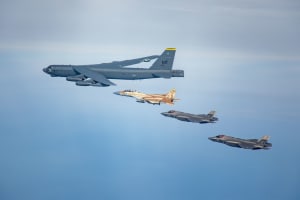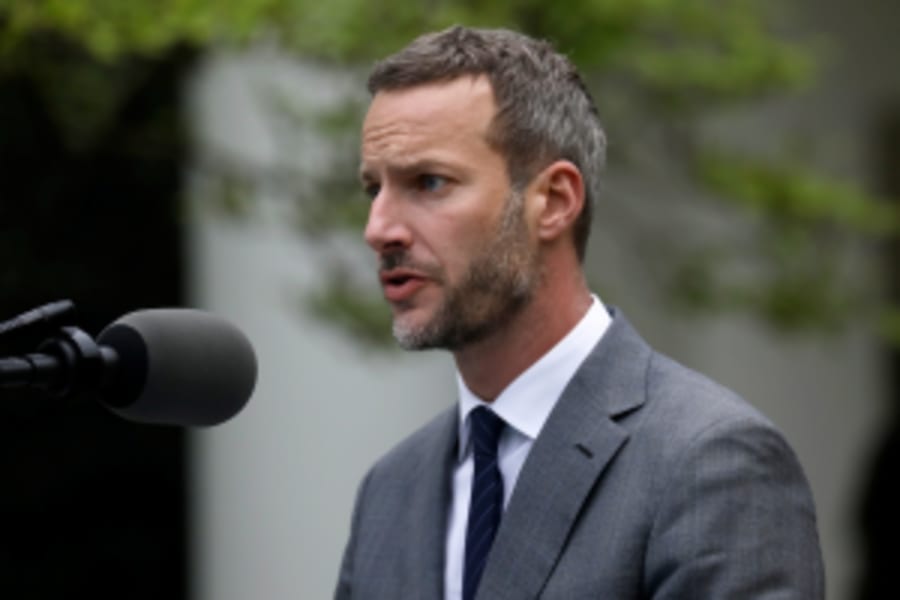As Israel prepares for dual retaliation, US looks to renew cooperation with regional partners to thwart attack
US CENTCOM commander to visit Middle East to prepare response to Iranian attack

Israel’s defense and security leaders held a series of meetings over the weekend to prepare for a possible multi-front attack scenario involving Hezbollah forces in Lebanon and the Iranian regime.
Both Iran and the terrorist organization Hezbollah have promised to launch retaliatory attacks against Israel following the high-profile killings of Fuad Shukr in Beirut last week, and Hamas leader Ismail Haniyeh in Tehran, a few hours later.
While the IDF has claimed responsibility for eliminating Shukr, Hezbollah's second-in-command, as retribution for a rocket attack that killed 12 Druze children and youths in the Israeli town of Majdal Shams, it has remained consistently silent regarding any involvement in the death of Haniyeh.
Despite that silence, Iran and Hamas both directly accused the “Zionist enemy” of Haniyeh's assassination. Iranian Supreme Leader Ayatollah Ali Khamenei directly threatened to attack Israel in response.
Since the deaths of two key figures, Israel has heightened its alert status. The decision to convene a series of meetings was further spurred by announcements from Iranian leaders about their intentions to directly strike Israel.
The Axios news outlet reported that the Iranian attack could come as early as Monday. The threat of another significant missile and drone strike on Israel prompted several airlines to cancel flights to and from Israel.
According to Ynet News, Israeli officials are actively preparing for various significant scenarios and are considering a pre-emptive strike against Iranian and Hezbollah targets to prevent a potential retaliatory attack.
With the ayatollah regime's warning that a Hezbollah response could target civilian areas, Israel asserted that an attack on civilian targets could lead to an open war.
On Sunday, the Lebanese news site Al-Mayadeen TV, affiliated with the Hezbollah terror group, wrote that the Iranian attack would cross Israeli red lines.
“Iran believe that the assassination of Ismail Haniyeh crossed red lines, regardless of the details of the operation,” the site reported. “Iran will react in a way that crosses the red lines of Israel.”
Israeli news site Israel Hayom reported that government ministers were issued satellite phones on Sunday to enable communication in the event of disruption to regular services.
Israeli Defense Minister Yoav Gallant stated that Israel is prepared to defend itself against an attack.
“Today, I examined the deployment of the IDF's troops both defensively and offensively,” Gallant said during a visit to the Ground Technology Unit responsible for preparing technical defenses.
“We are very strongly prepared in defense – on land and in the air, and we are ready to move quickly to attack or respond. We will exact a price from the enemy, as we have been doing in recent days. If it dares to attack us, it will pay a heavy price.”
U.S. CENTCOM Commander General Erik Kurilla is expected to arrive in Israel on Monday to coordinate a response to the anticipated Iranian attack.
According to a U.S. official, Kurilla is also scheduled to visit Jordan and several Gulf nations, as the U.S. attempts to coordinate a defense response to an Iranian strike in much the same way it did before the Iranian attack against Israel in April.
Several Israeli news sites reported that Iran may be planning to attack Israel on Tisha B’Av, traditionally known as the saddest day on the Jewish calendar, which takes place next week on Aug. 12-13. Tisha B’Av commemorates the destruction of the First and Second Temples in Jerusalem. Those two events took place about 655 years apart but on the same calendar date. Traditionally, it is a day of mourning and reflection for the Jewish religious community and is observed as a day of fasting, prayer, and reading the Book of Lamentations.

The All Israel News Staff is a team of journalists in Israel.
You might also like to read this:














